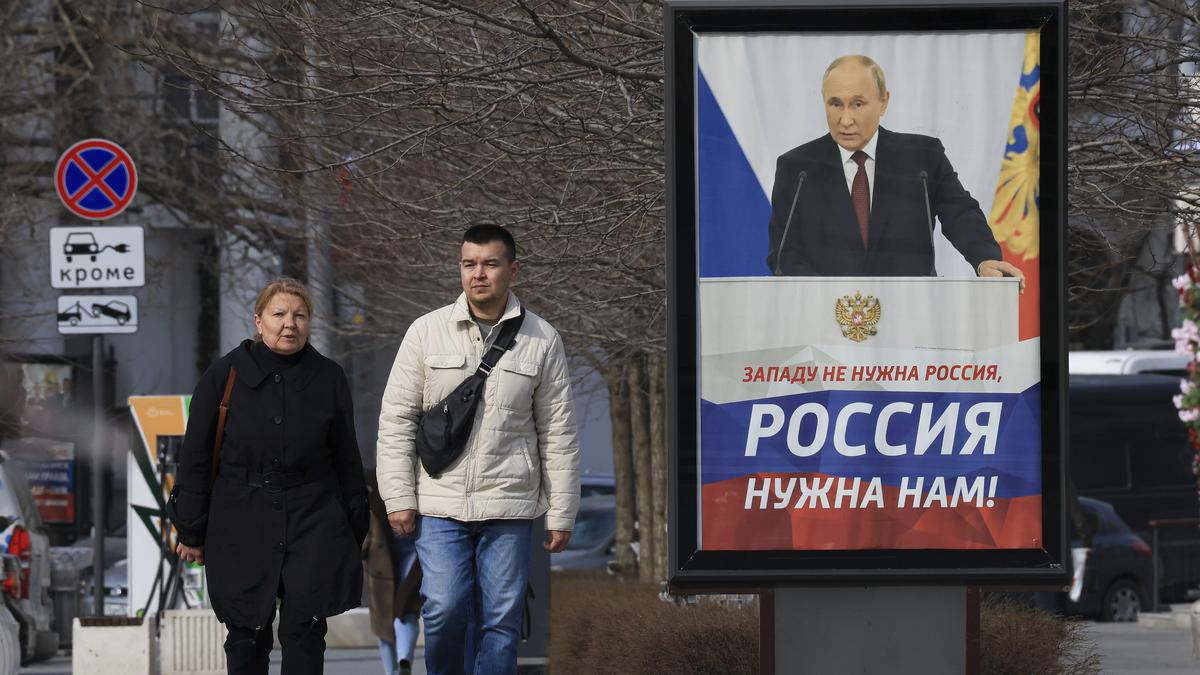
As Vladimir Putin orchestrates his reelection, a resilient Russian economy is a key selling point
The Hindu
Russian economy remains stable despite sanctions, inflation, and shifting trade patterns, supporting Putin's reelection bid.
Russians are finding that a few imported staples, like fruit, coffee and olive oil, have shot way up in price. Most global brands have disappeared — or been reincarnated as Russian equivalents under new, Kremlin-friendly ownership. A lot more Chinese cars are zipping around the streets. Those who want a particular luxury cosmetic may be out of luck.
Other than that, not much has changed economically for most people in President Vladimir Putin’s Russia, more than two years after he sent troops into Ukraine. That’s despite the sweeping sanctions that have cut off much of Russia’s trade with Europe, the U.S. and their allies. That sense of stability is a key asset for Mr. Putin as he orchestrates his foreordained victory in the March 15-17 presidential election for a fifth, six-year term.
Inflation is higher than most people would like, at over 7% — above the central bank’s goal of 4%. But unemployment is low, and the economy is expected to grow 2.6% this year, according to the International Monetary Fund, double the previous forecast. That’s far above the 0.9% expansion predicted for Europe.
“There are difficulties, of course — they’re connected with the general situation in the world,” said Andrei Fedotov who was walking down the Tverskaya Street central shopping avenue a few blocks from the Kremlin. “We know this very well, but I believe we’ll overcome them.”
Brand manager Irina Novikova was upbeat despite higher prices in stores: “More domestic products have appeared, more agricultural products. Yes, we all see that some goods have disappeared.”
“Prices have gone up — if I used to buy three items for a certain price, now I buy one,” she said, but added, “Go look for Russian products, the shops with Russian goods.”
“Industry may have suffered, we know there have been some setbacks in that regard, but again, we’re adjusting and we’re reorienting our thinking, and we’re starting to look to our Chinese friends,” Ms. Novikova said.


















